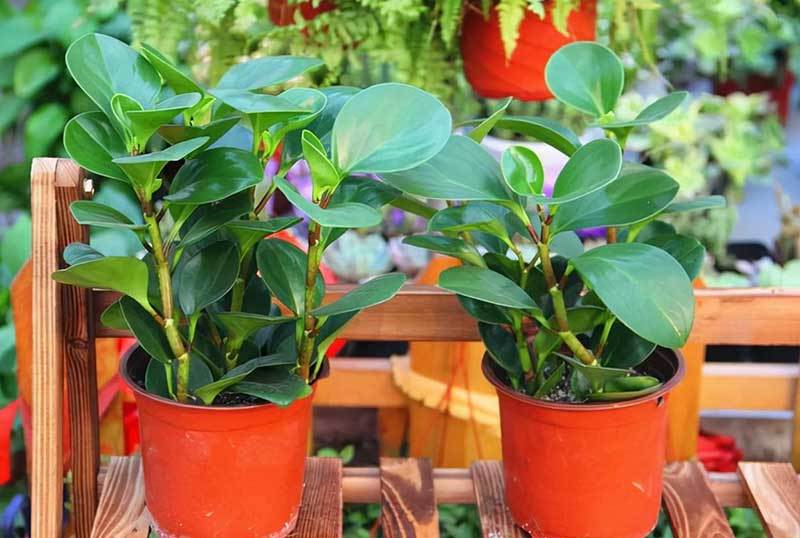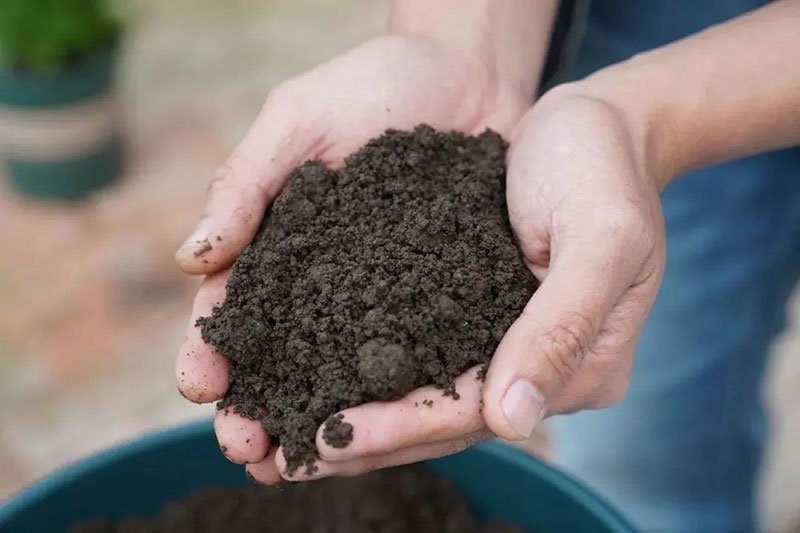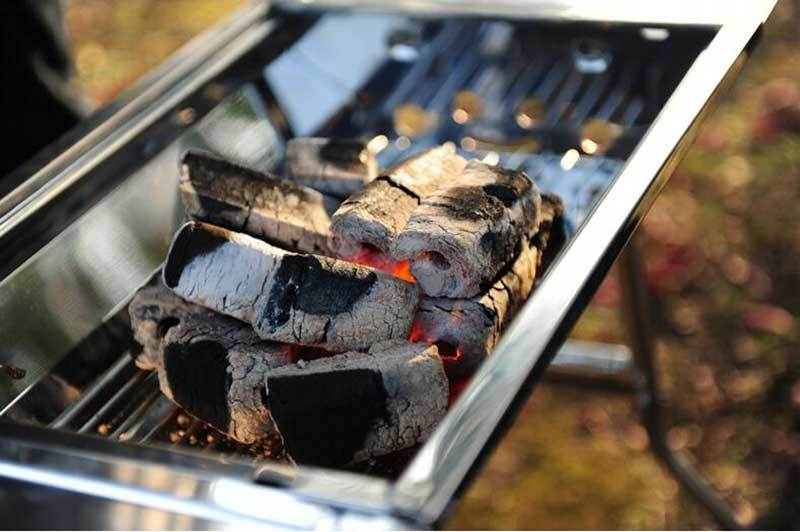Is Kingsford Charcoal Ash Good for Plants - Wilson Garden
Introduction
Is charcoal ash good for plants? Nitrogen, phosphorus and potassium are three primary macronutrients for the plants' healthy growth. Charcoal ash contains trace amounts of these vital nutrients. Using charcoal ash in garden can help supplement deficient soils.
Charcoal ash has the ability to improve soil structure by helping to loosen clay soils and breaking up compacted areas. This increased aeration allows for better water and nutrient absorption, resulting in healthier plants.
Charcoal ash helps neutralize pH levels in soil. This allows plants to absorb more nutrients from the ground. You can also use charcoal ash as a natural pesticide. It can help prevent pests from damaging your plants.
Understanding Charcoal Ash
Definition and composition: Charcoal ash is created from the incomplete burning of wood. It consists mostly of carbon (C). Charcoal ash also includes potassium (K), phosphorus (P) and nitrogen (N).
Charcoal ash for plants is an excellent soil amendment. Its high C content helps improve soil structure and drainage time. People have been using charcoal ash as fertilizer for centuries.
Difference between charcoal ash and wood ash: They have an important distinction. Wood Ash is a fine grey substance, whereas charcoal ash describes the black chunks of material that accompany the ash.
Charcoal ash can help the plants thrive if you correctly use it. You can apply it at the beginning of the growing season. This will be most effective. It will supply essential nutrients in the short-term and enhance soil fertility in the long run.

Is Charcoal Ash Good for Plants?
Is Kingsford charcoal ash good for plants? Charcoal ash offers many beneficial nutrients for plants, including potassium, phosphorus, calcium and magnesium. These essential minerals promote healthy growth and development in plants. Because they are required for photosynthesis and respiration processes.
Potassium is particularly important in the formation of proteins and sugars, both necessary components for plant growth. Phosphorus helps form strong roots systems while calcium aids with cell division and fruit production. Magnesium serves an important role in chlorophyll formation, which can absorb energy from light during photosynthesis.
Charcoal ash can help returning deficient soil nutrients back into balance by supplementing what may be lacking or depleted due to over-farming. You can also use charcoal dust to increase the pH of acidic soils. This makes them more suitable for certain plant species. Charcoal briquette ash can save time and money. Kingsford charcoal ash in garden can labor involved in maintaining soils and ensuring that crops reach their full potential.
Improving Soil Structure with Charcoal Ash
Is burnt charcoal good for plants? Charcoal ash good for garden. It is an often-overlooked soil amendment. Charcoal ash can have a dramatic positive impact on the structure of your garden’s soil.
What can you do with Kingsford charcoal ashes? You can use charcoal ash as a soil conditioner to enhance drainage and aeration. It also helps to regulate pH levels in the growing environment. All of these benefits are essential for optimal plant growth and health.
Charcoal ash as a soil conditioner: Charcoal ash works by binding clay particles together, creating larger aggregates that promote better water infiltration and air exchange within the soil. This helps roots access oxygen more easily and prevents plants from being overly saturated or deprived of moisture. Kingsford charcoal ash helps to prevent compaction, which is a common issue with heavy clay soils.
Enhancing soil drainage and aeration: The addition of charcoal ash to soil also improves its permeability and structure by allowing more water to quickly pass through it. It prevents nutrient-rich topsoil from washing away in the process. This enhances overall aeration capabilities, making it much easier for roots to spread out and take up nutrients from the surrounding environment.
Impact Soil pH Levels: Charcoal ash has a slightly alkaline nature that can help balance soil pH levels when added in moderation. This makes it ideal for acidic soils which will benefit from some additional buffering.
However, it’s important to avoid adding too much charcoal ash at once. Because this will eventually lead to the soil becoming overly alkaline, which can be detrimental for many plants.
Promotes root growth: Bbq ash in compost can improve the structure of soil and helps promote stronger root growth in plants. Because the aeration and drainage capabilities allow roots to spread out more effectively.
Charcoal dust for plants also provides them with access to oxygen and other nutrients they need for healthy development. It also prevents waterlogging that can cause excessive moisture stress on roots. This helps your plants adequately nourished throughout their life cycle.
Charcoal Ash and Organic Matter
Is bbq charcoal good for plants? The combination of charcoal ash with organic material like compost or manure is highly beneficial for plants. Charcoal ash in compost provides essential macronutrients, helps retain moisture in the soil.
The combination also improves oxygen flow to make the soil more hospitable for plant life. Ultimately, this encourages healthy root growth and disease resistance so that your plants can thrive!
The role of organic matter: It is essential for healthy and fertile soil. Organic matter helps retain moisture, provides nutrients and contributes to soil structure. Charcoal ash interactions with organic matter are beneficial in many ways.
Charcoal ash interacts with organic matter: Charcoal ash is an excellent source of potassium (K). Potassium enhances root growth, increases disease resistance in plants by boosting their immune system, and improves water retention in the soil.
The addition of charcoal ash into soil also helps balance pH levels by releasing calcium carbonate when combined with organic material like compost or manure. When it is combined with compost or manure, it also helps create a better soil structure. This fluffy texture increases air space between particles, which allows oxygen to flow more easily through the soil and promotes healthy root growth.
Combining charcoal ash with compost or manure: Combining charcoal ash with organic material can have many benefits for your garden or field. You should incorporate them together for best results. Because adding too much of either alone can cause problems such as salt accumulation and nutrient imbalances.
In general, the used charcoal as fertilizer can provide a good balance of nutrients. Adding charcoal to compost helps improve water retention in the soil. This reduces runoff and erosion as well as minimizes water stress on plants during dry spells.

Using Charcoal Ash in Different Planting Scenarios
Is charcoal ash good for grass? Charcoal ash can provide an extra boost of nitrogen for grass. This helps promote healthy growth and development in most species. It increases organic matter in the soil, which helps improve soil structure.
You shouldn't apply too much charcoal briquette ash. Because it can cause burn spots on your lawn. Instead, you should mix equal parts compost or topsoil with the ash and apply it sparingly.
Is charcoal ash good for tomato plants? Charcoal ash can be beneficial in a few ways to tomato plants. Firstly, it helps improve soil structure by increasing drainage and aeration, making sure that your tomatoes get enough oxygen for their roots.
Secondly, the trace minerals found in charcoal ash can help provide your tomato plants with essential nutrients like phosphorous and potassium. You should avoid applying too much as this could lead to nutrient burn on the foliage of your plants. It is also important to make sure that any charcoal used is fully extinguished before adding it near the root zone of sensitive vegetables or herbs.
Tips for Using Charcoal Ash Effectively
Is charcoal dust good for plants? You can use charcoal ashes in garden to improve the health of plants and soils. But it may have negative consequences for your plants if done incorrectly. Here are some tips to help you use charcoal ash effectively.
Testing soil pH before application: You should test the pH before applying your soil. This can get the most out of using charcoal ash as a soil amendment. Charcoal ashes contain high levels of calcium and magnesium carbonates which can alter soil pH levels significantly. You risk changing the acidity or alkalinity of the soil too much without testing soil pH. This may harm your plants rather than help them.
Adjusting charcoal ash application rates: You should adjust your application rates of charcoal ash based on the needs of your plants and soil. Not all plants require the same amount of charcoal ash. Some may even be sensitive to it.
Consider seasonal variations and plant growth stages: Charcoal ash is most effective when applied in moderation over an extended period of time. This means you should consider seasonal variations and the growth stages of your plants. Applying it in heavy doses during a certain plant growth stage can lead to nutrient imbalances and even plant death.
Monitor plant response and adjust as necessary: You should monitor your plants’ response to using charcoal ash in your garden. When the application rate you are using is not benefiting your plants as expected, make adjustments as necessary. Too much charcoal ash is just as harmful as too little.

Frequently Asked Questions
Is bbq charcoal ash good for plant?
You can use charcoal ashes from your barbeque grill to improve soil drainage. It can improve aeration and help to absorb excess moisture. The bbq ash for plants also provides trace minerals that are beneficial for plant growth. Charcoal briquette ash can deter pests such as insects, snails and slugs.
How do you apply charcoal ash?
Charcoal ash should be mixed into the soil around the root zone of the plant before planting or topdressing after planting. You can add it directly to compost piles or around the base of plants. Be sure to spread it out evenly and keep it away from direct contact with foliage to prevent burning or damage to leaves.
How often should I apply charcoal ash to my plants?
The frequency of application will depend on the type of plants you have, their location, and the environment they’re in. In most cases, you can apply charcoal ash every 2-4 weeks for best results. However, always refer to the directions on your particular product for exact instructions regarding how frequently charcoal ash should be used.
Can I use charcoal ash in containers?
You can use charcoal ash in containers. The plastic garden pots should not be too small and have proper drainage. Charcoal ash can help improve soil drainage and can also provide essential minerals to your plants.
What are some precautions when using charcoal ash?
You should wear gloves or a face mask while applying charcoal ash as direct contact with skin may irritate you. You can use a mask and protective eyewear when applying it to avoid inhalation or getting it into the eyes. This also prevents the spread of ash onto other plants or areas. Furthermore, be sure to never apply wet ash. Because this can cause burns on plant foliage and will increase the risk of developing root rot in soil.
Is charcoal ash safe for all types of plants?
Charcoal ash is generally considered safe for most types of plants but should always be used sparsely and with caution. Research your particular type before using on any specific species. Generally speaking, you should not use charcoal ash directly on young plants or seedlings. Because their fragile root systems may not be able to withstand the harshness of it.
Is charcoal ash better for outdoor or indoor plants?
Charcoal ash can benefit both outdoor and indoor plants alike. However, the application rate will vary depending on if the plants are located indoors or outdoors. Outdoor plants may require more frequent applications of charcoal ash due to being exposed to the elements, while indoor plants may need less depending on their particular environment and needs.
Conclusion
In conclusion, charcoal ash is good for plants. It is an effective and beneficial soil amendment for gardeners. Kingsford charcoal ash can help improve water retention, enhance nutrient availability and increase microbial activity in soils. Its ability to reduce the pH also helps ensure that plants can access these elements with greater ease.
When incorporating charcoal ash into gardening practices, you should keep in mind the type of plant and the overall climate and soil characteristics of your specific area. Although the benefits of using charcoal ash as a soil amendment are many, they will vary from region to region. Therefore, experimentation is key. So don’t hesitate and experiment with charcoal ash today!
This article is part of our Gardening Knowledge Hub.
Related Article:
How to Make Bone Meal Fertilizer
Is Peat Moss Good for Succulents
What Vegetables Do Not Like Peat Moss
What Is Air Pruning



